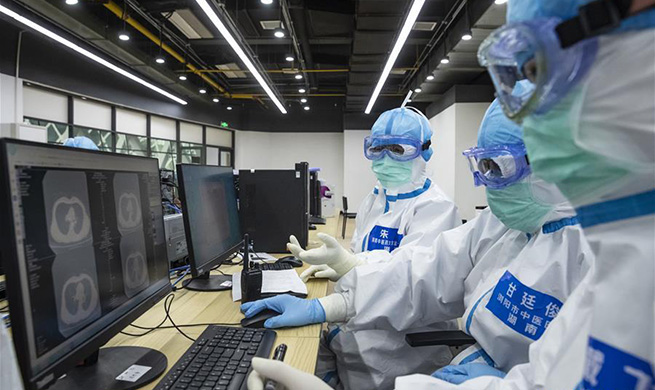CHICAGO, Feb. 26 (Xinhua) -- Researchers at Washington University School of Medicine in St. Louis have found a drug strategy that aims at revving up the immune system and boosting a type of immune cell known as natural killer (NK) cells to effectively treat eczema, at least in mice.
The findings were published this week online in the journal Science Translational Medicine.
The researchers noticed over time that eczema patients tend to have very low levels of NK cells in their blood. They took this clinical observation to the laboratory and a mouse model of the skin disease.
After removing the animals' ability to make NK cells, they noticed that markers of inflammation in the animals worsened. When they used an investigational drug prototype to increase the number of NK cells in the animals, inflammation lessened, and the mice got better.
"If you look at the skin of the mice we studied, their eczema resolves in a way we haven't seen before with other therapies," said principal investigator Brian S. Kim, an associate professor of medicine. "And so far, our mouse model of eczema has accurately predicted what we will see in patients."
Kim believes that in addition to improving skin rash associated with eczema, boosting the numbers of NK cells could help restore immunity to viruses in eczema patients. People who have very low numbers of NK cells turn out to be more susceptible to the herpes virus, pox viruses and HPV viruses, among others.
At least 10 percent of the U.S. population has eczema, an itchy, splotchy rash that leaves many patients discouraged due to a lack of many effective treatments.
"We have a patent pending for this strategy, and we're planning to move toward trials," said Kim. "And we won't limit our studies to eczema. This strategy could help patients who have asthma or food allergies, conditions that often appear along with eczema."













